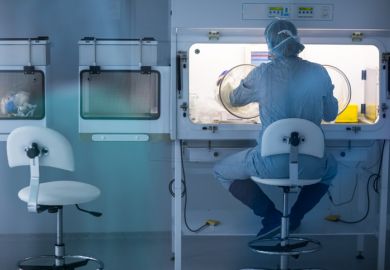Bradford, Bristol, Nottingham and Liverpool are the sites for the first zones which will provide a focus for increasing interaction between universities and business.
The Bradford site will create a “digital health zone” with the intention of expanding businesses in communications-enabled healthcare.
Led by the University of Bradford, the zone will be built around two bespoke facilities: a “digital exchange” to support technology development and a “living clinical laboratory” to pilot new healthcare products and services.
In Bristol the zone will focus on robotics and autonomous systems, biosciences, health science and other related sectors.
The partnership is led by the University of West of England in partnership with the University of Bristol and will bring together business leaders and academics specialising in the fields.
The Nottingham zone aims to develop relationships between academics and businesses in the areas of big data, advanced manufacturing, aerospace and energy.
The plans will see a new technology entrepreneurship centre at the University of Nottingham’s Innovation Park.
The university’s vice-chancellor, Sir David Greenaway, said: “Gaining UEZ status will enable us to significantly accelerate the work we are doing to foster business start-up, innovation and growth.”
In Liverpool, where the chancellor, George Osborne, announced the plans, the UEZ will be known as “Sensor City” with its focus on technologies that measure and collect data from the external environment including temperature and humidity.
A new £15m facility representing a collaboration between the University of Liverpool and Liverpool John Moores University plans to act as a “shop window” for the city’s high tech start-ups.
Stephen Holloway, provost at Liverpool, said: “Creating a new space where ideas from our sensor research laboratories can be transformed into new start-ups is a very exciting prospect for both universities and provides great opportunities for our students and staff.”
Robin Leatherbarrow, pro vice-chancellor at Liverpool John Moores, added: “This is a tremendous success for Liverpool and a superb example of how our two universities can work together in an area where we each have considerable complementary strengths.”
UEZs will differ from already existing “Enterprise Zones” as they will not come with the same tax and business rate incentives attached or promises of high-speed broadband.
They will however be granted support on exporting from the government department UK Trade and Investment and be offered simplified planning applications.
Register to continue
Why register?
- Registration is free and only takes a moment
- Once registered, you can read 3 articles a month
- Sign up for our newsletter
Subscribe
Or subscribe for unlimited access to:
- Unlimited access to news, views, insights & reviews
- Digital editions
- Digital access to THE’s university and college rankings analysis
Already registered or a current subscriber? Login




